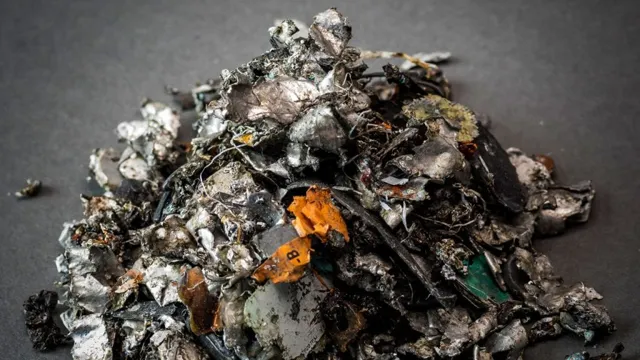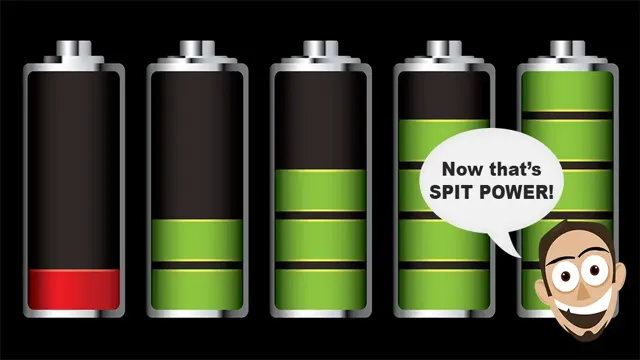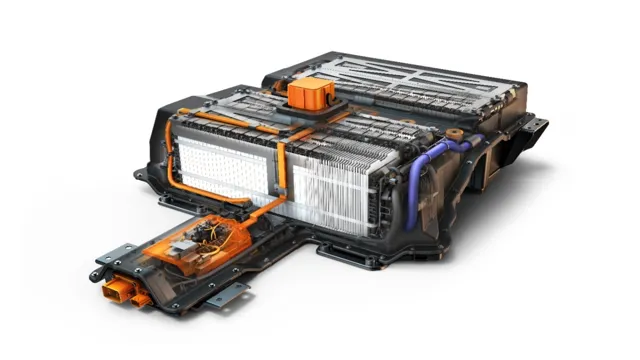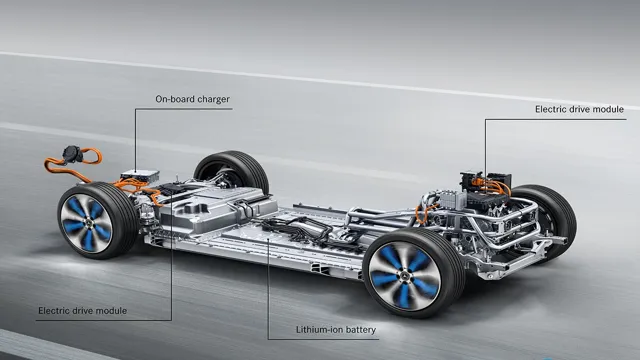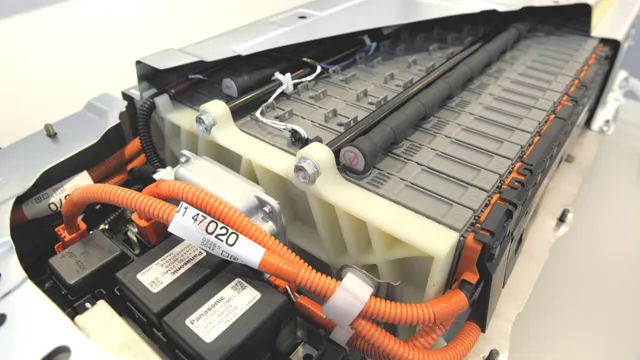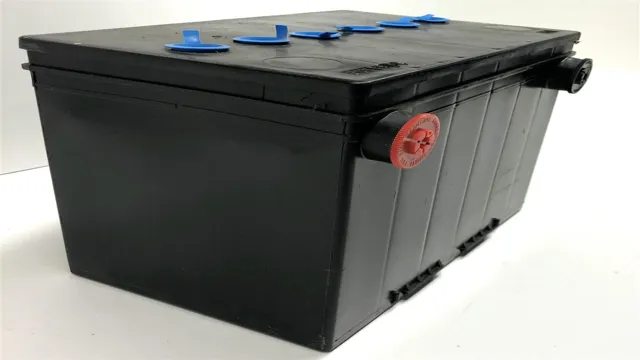Reviving the Green Future: Sustainable Solutions for Disposal of Electric Car Batteries
EV batteries are essential components in the world’s transition to clean and sustainable energy. The accelerating global sales of electric vehicles have increased the demand for the lithium-ion batteries, however, this also means that there is a looming need for proper disposal of EV batteries. The improper disposal can lead to potential hazards to human health, the environment, and can cause irreversible damage to our planet.
In this blog post, we’ll explore the importance of disposing of EV batteries safely, the risks associated with improper disposal, and the various methods of disposal that companies and individuals can adopt to ensure a safer and more sustainable future. Whether you own an EV, work in the EV industry, or are simply interested in the topic, this post will have something for you. So come along with us on this journey and learn how we can all contribute to the safe and responsible disposal of EV batteries while still enjoying the benefits of this innovative technology.
Problem
As electric vehicles become increasingly popular, their disposal electric car batteries remains a growing concern. While electric car batteries can last for many years, they will eventually need to be replaced or disposed of. Unfortunately, the current methods of disposing electric car batteries are not ideal.
Many end up in landfills, where they can leak toxic chemicals into the soil and groundwater. Others may be incinerated, releasing harmful pollutants into the air. Additionally, extracting the raw materials needed to manufacture new batteries can be environmentally damaging, as it often involves mining in fragile ecosystems.
As we continue to transition away from fossil fuels, it is crucial that we find sustainable and responsible ways to dispose of electric car batteries. Otherwise, we risk exacerbating the very environmental problems we are seeking to solve.
The Environmental Danger of Disposed Batteries.
The problem with disposed batteries is that they pose a significant environmental risk. Batteries contain heavy metals such as lead, cadmium, and mercury that are harmful to the environment and can contaminate the soil and water if not disposed of properly. When batteries are discarded in landfills, these hazardous chemicals can seep into the ground, contaminating the soil and the groundwater.
Moreover, these heavy metals can also leach into our water systems, affecting marine life and even our own health. The accumulation of these toxic substances in the environment can lead to long-term damage to our ecosystems and human health. Therefore, it is essential to dispose of batteries properly by recycling them to prevent harm to our environment.
By recycling batteries, we can recover the heavy metals and reuse them, reducing their environmental impact. Let’s work together to protect our planet by properly disposing of our batteries and preserving our environment for future generations.
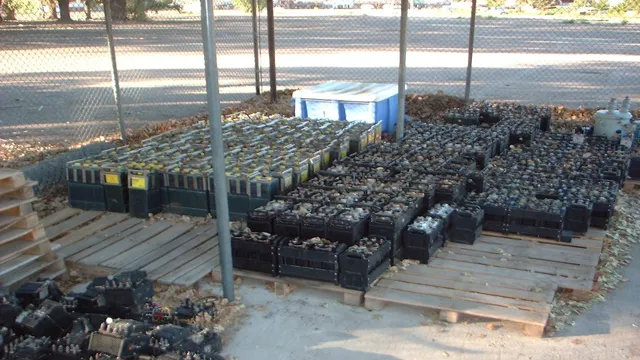
Solutions
When it comes to the disposal of electric car batteries, there are a number of solutions available. The first step is to ensure that the batteries are recycled properly, which can be done by returning them to the manufacturer or an authorized recycler. In addition, there are a number of companies that specialize in the recycling of electric car batteries, which can help to reduce the environmental impact of these vehicles.
Another option is to repurpose the batteries for use in other applications, such as energy storage systems or as backup power for homes and businesses. Ultimately, the key to effective disposal of electric car batteries is to ensure that they are handled in a responsible and sustainable manner, in order to minimize the impact on the environment and our communities. So, whether you’re looking to recycle or repurpose your electric car battery, there are a number of solutions available that can help to ensure that it is disposed of safely and responsibly.
Recycling: A More Eco-Friendly Solution.
Recycling is undoubtedly one of the most environmentally-friendly solutions to help decrease the negative impact of waste on the planet. By reusing and repurposing materials, we can conserve natural resources and reduce the amount of garbage that ends up in landfills or pollutes our oceans. It’s essential to remember that recycling doesn’t just benefit the planet; it also benefits us as individuals by saving us money on new purchases and reducing the amount of pollution we’re exposed to.
So why not take the extra time and effort to recycle? It may seem like a small action, but it can have a significant impact in the long run. By doing our part and recycling, we can help protect the planet for future generations.
Established Battery Recycling Programs in Your Area.
If you’re looking to dispose of batteries and wondering how to do so in an environmentally-friendly way, there are established battery recycling programs in your area that you can take advantage of. These programs allow you to properly dispose of all types of batteries without having to worry about harming the environment. Some of the most common types of batteries that can be recycled include lithium-ion batteries, alkaline batteries, lead-acid batteries, and nickel-cadmium batteries.
By participating in battery recycling programs, you’ll not only be doing your part to protect the environment but also supporting the growth of the green economy. So instead of tossing your old batteries in the trash, consider finding a local battery recycling program to ensure that they are disposed of safely and responsibly.
The Importance of Proper Disposal.
Proper disposal of waste is crucial to maintain the health and safety of our environment. With so much waste being generated every day, it can be challenging to figure out the right way to dispose of it. Fortunately, there are various solutions to this problem.
Recycling is one of the best ways to reduce waste and conserve natural resources. It involves collecting, processing, and reusing materials that would otherwise be thrown away. Another solution is composting.
This involves breaking down organic waste, such as food scraps and yard waste, into a nutrient-rich soil that can be used for gardening. Additionally, hazardous waste should be disposed of properly to prevent harm to both humans and the environment. This type of waste includes materials such as chemicals, batteries, and electronics, which require specific disposal methods.
By utilizing these solutions, we can reduce waste, conserve natural resources, and protect our environment.
Impact
Disposing of electric car batteries is a critical issue in the automotive industry, as these batteries are known to hold harmful chemicals that could damage the environment if not handled properly. With the increase in the number of electric vehicles on the road, the disposal of used batteries has become an urgent matter. In fact, it is estimated that by 2030, the world will generate 11 million tons of spent EV batteries.
Luckily, there are already solutions being developed to recycle and reuse these batteries. One of the most promising methods involves breaking down the batteries into their constituent parts, such as metals and rare earth materials, and using them to produce new batteries. This creates a circular economy that is both environmentally friendly and economically sustainable.
With the right technology and policies in place, we can ensure that our move towards electric transportation does not come at the cost of the planet.
Reducing Pollution and Waste.
Reducing pollution and waste has a significant impact on our planet. By cutting back on waste and pollution, we can help reduce the negative effects on the environment, wildlife, and human health. The main keyword “pollution” is one of the most critical issues of the modern world, and it has become a severe threat to the planet’s ecosystem.
Pollution affects our air, water, and soil, and it can lead to severe health problems, including respiratory illnesses and cancer. Reducing pollution can be achieved by simple actions like properly disposing of garbage and reducing the use of harmful chemicals in our daily lives. We can also conserve energy by switching off lights and appliances when not in use, using public transportation or carpooling, and investing in renewable energy.
These actions can help decrease the amount of waste we produce and reduce the pollution caused by burning fossil fuels. Waste reduction is also essential for reducing pollution and preserving natural resources. We can reduce waste by practicing the three R’s: reduce, reuse, and recycle.
By reducing the number of products we purchase and reusing items when possible, we can reduce the amount of waste we produce. Recycling is another effective way to reduce waste by converting materials into useful products, reducing the need to extract raw materials from the environment. Ultimately, reducing pollution and waste is a collective responsibility that requires everyone’s effort.
By doing our part, we can help protect the planet and ensure a healthy future for generations to come.
Promoting Sustainable Electric Cars.
When it comes to promoting sustainable electric cars, the impact can be significant and far-reaching. Not only do electric cars help to reduce harmful emissions, but they also lower our dependence on fossil fuels. This not only benefits the environment but also the economy, as countries can reduce their reliance on imported oil.
Additionally, electric cars can have a positive impact on public health by reducing air pollution, which can lead to respiratory illnesses. In terms of personal impact, driving an electric car can save you money in the long run, as they require less maintenance and have lower operating costs compared to traditional gas-powered vehicles. Overall, the impact of promoting sustainable electric cars is widespread and should be a key focus in efforts towards a more sustainable future.
Conclusion
In conclusion, disposing of electric car batteries is a shocking challenge, but one that can certainly be electrified with innovative solutions. We can’t just sweep this issue under the rug, or toss it into the landfill – we need to spark a conversation and ignite action to ensure that these potent power sources are recycled and repurposed in a sustainable and efficient manner. With a little bit of energy and creativity, we can keep the planet charged and buzzing with eco-friendly transportation options for generations to come.
“
FAQs
Why is the disposal of electric car batteries important?
The disposal of electric car batteries is important because they contain hazardous materials that can be harmful to the environment if not disposed of properly.
How should electric car batteries be disposed of?
Electric car batteries should be disposed of at certified recycling centers that specialize in handling hazardous materials. These centers have the proper equipment and procedures in place to safely dispose of the batteries without harming the environment.
Can electric car batteries be reused or recycled?
Yes, electric car batteries can be reused or recycled. While they may no longer be suitable for use in a car, the batteries can still hold a charge and be used in other applications, such as energy storage. Recycling the batteries also helps to recover valuable metals, such as lithium and cobalt.
What are the risks associated with improper disposal of electric car batteries?
Improper disposal of electric car batteries can lead to environmental contamination and pose health risks to humans and wildlife. The batteries contain toxic chemicals, such as lead, cadmium, and mercury, that can leak into the soil and water if not disposed of properly.
